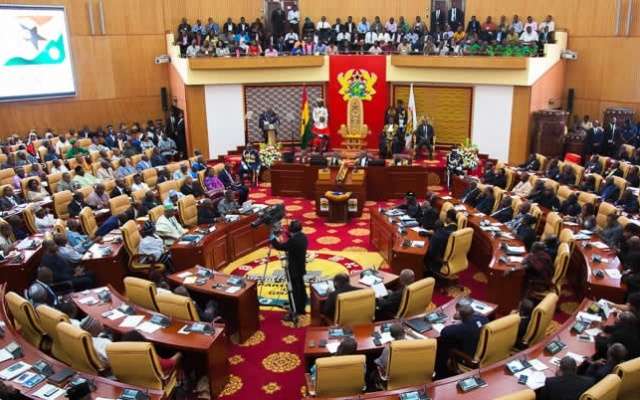On the occasion of the International Day for Universal Access to Information which is being marked across the world today (September 28), the Media Foundation for West Africa (MFWA) wishes to express its deepest disappointment at the continued failure of Ghana’s government to pass the Right to Information (RTI) Bill into law.
It is quite unfortunate that the Akuffo-Addo-led government has paid only lip service to passing the RTI Bill just like the previous NDC-led government. The non-passage of the Bill is a reflection of the government’s unwillingness to give Ghanaians the legal basis to demand public-interest information from government agencies and to hold public office holders accountable for their management of public resources.
When passed, the RTI law is expected to operationalise article 21(1) of the 1992 constitution which provides for citizens’ right to information as well as article 41 which obliges citizens “to protect and preserve public property and expose and combat misuse and waste of public funds and property.”
The RTI Bill, which was first laid before Parliament on February 5, 2010, has fallen victim to foot-dragging by the political establishment. This has raised doubts about government’s commitment to promoting transparency and fighting corruption.
The ruling New Patriotic Party NPP government promised in its 2016 election manifesto to pass the RTI Bill into law if the then outgoing Parliament failed to do so before the expiration of its term.
The sixth parliament of the Fourth Republic eventually failed to pass the Bill before it bowed out. Yet, the NPP government has failed to redeem this pledge. Indeed, nearly two years after assuming power, the NPP has only a litany of promises and missed deadlines to show as far as the RTI law is concerned.

It is significant to note that last year both President Nana Addo-Dankwa Akufo Addo and his Vice, Mahamudu Bawumia, the two most powerful figures in government, promised and failed to redeem their separate RTI pledges.
“Our government has already made it clear that we will be passing the Right to Information Act. …These are just some of the actions we intend to implement this year,” the Vice President said at a Transparency International Regional Meeting in Accra on February 2, 2017.
Then on July 20, 2017, while delivering the keynote address at the Africa Open Data Conference held in Accra, the President affirmed that his government would ensure the passage of the bill to “encourage citizens to hold the government accountable and ensure greater transparency.”
Finally, in what was hailed as the most reassuring statement on the RTI Bill, the President used the grand occasion of Ghana’s 61st Independence celebration on 6th March 2018 to give a firm deadline to the passage of the long-awaited bill.
“After many years of hesitation, we intend to bring a Bill again to Parliament and work to get it passed into law before Parliament rises,” the President assured to rapturous applause.
The keen expectation raised by this firm presidential assurance was, however, doused in a matter of weeks as Parliament rose on March 23, 2018 without considering the RTI Bill.
In February, the MFWA issued a press statement calling on government to ensure that the Bill is passed before hosting the World Press Freedom Day on May 3 this year. We argued that it would be an embarrassing contradiction for the country to host a global discourse on press freedom and access to information when it has failed to pass the bill guaranteeing its citizens the legal right to access public information.
Having failed to use the World Press Freedom Day opportunity, Ghana was expected to target the International Day for Universal Access to Information which falls today September 28 for the passage of the RTI law. The MFWA therefore considers it a disappointment for Ghana to be marking yet another Access to Information Day without an RTI law, despite several assurances by government.
With the establishment of the Office of the Special Prosecutor, the RTI Law is the only missing ammunition in Ghana’s anti-corruption legal arsenal. Ironically, it is the most crucial tool in the fight against corruption, given that it will bring about increased scrutiny of the operations of public institutions and facilitate the gathering of evidence to prosecute corrupt officials.
In view of the above, the MFWA deeply regrets the continued hesitation over the RTI Bill and calls on the leadership of Parliament to be responsive to Ghanaians’ longstanding demand for this law, and to finally deliver this important law before the end of this year which also marks 25 years of the Fourth Republic.
